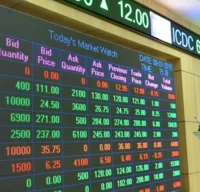The Kenya Bureau of Standards has partnered with the Kenya Trade Net System in launching a single window platform that allows traders to submit import-export documentation and access approvals in one stop.
The single window system replaces the time-consuming manual process that required traders to seek clearance from multiple government agencies via different platforms occasioning delays and high clearance costs for goods at the Kenyan border points.
“We anticipate that the new single window system will eradicate the past operational inefficiencies associated with trade documentation and approval processes. This will enhance customs efficiency and boost national competitiveness in the import-export market through simplified cross border trade processing,” says Lt Col (Rtd) Bernard Njiraini, Managing Director, KEBS.
According to the World Bank statistics, Kenya is estimated to export goods and services worth KES 600 million against imports of KES 2 billion.
The system that started operation on 1st April 2021, is expected to fast-track the clearance of cargo through a self-operating process, allowing businesses to not only plan and allocate resources accordingly but also mitigate logistical risks and challenges. The new system also offers a secure verification option to safeguard against false documents such as permits, licenses, and certificates with the aim to create a transparent and fast processing system.
READ>>>>>How Kenya Became Second Largest Nation To Trade Cryptocurrencies in Africa
Other accrued benefits include elimination of cumbersome use and storage of paper files as well as associated costs.
Previously, the manual process led to delayed decision making due to additional time spent in obtaining, collating and analysing data and high indirect transactional taxation due to errors or duplicated manual processes. Traders also had to deal with long coding processes, shipping delays and compliance violations at points of entry.
Beneficiaries of the newly introduced Kenya Trade Net System include partner Government Agencies, Exporters, Importers, Consolidators, Ground Handling Agents Customs and Shipping Agents to institutions such as Banks, Insurance and Container Freight Station.

![The single window system replaces the time-consuming manual process that required traders to seek clearance from multiple government agencies via different platforms occasioning delays and high clearance costs for goods at the Kenyan border points. [Photo/Maritime Logistics Professional]](https://businesstoday.co.ke/wp-content/uploads/2021/05/MARIT.jpg)











Leave a comment